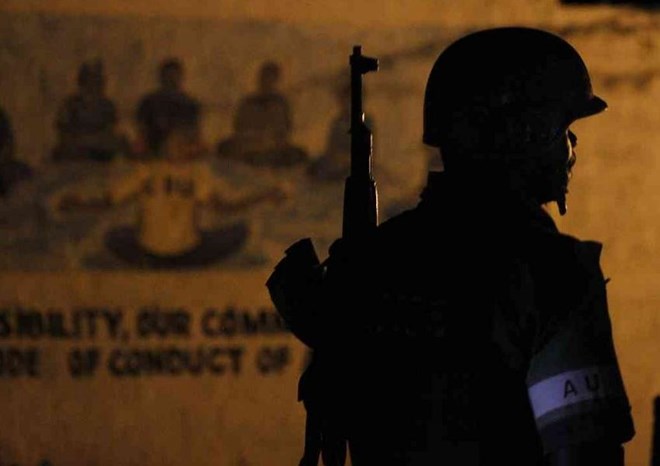
Monday February 18, 2019
At the AU-EU ministerial meeting in Brussels, Foreign Affairs CAS Ababu Namwamba urged the UN to finance Africa's counter-terrorism mission in Somalia.
“The promotion and maintenance of peace and security in the world is the primary mandate of the United Nations,” Namwamba said.
advertisements
Kenya was not saying this for the first time. President Uhuru Kenyatta told the then UN boss Ban Ki Moon in 2016 that there was an urgent need to ensure "predictable, adequate and sustainable funding for Amisom through UN-assessed contributions”. The source of the funding problem can be traced to the entry into Somalia and the partnerships that followed.
Paul D Williams, Associate Professor of International Affairs at George Washington University, says Amisom's initial financial costs — 2007-2011— fell directly on the Troop Contributing Countries (TCCs). At that time, they were only Uganda and Burundi.
"They received considerable financial assistance from several partners — notably the EU, US, and UK — as well as from a private firm, Bancroft Global Development," William notes in his publication: 'Paying for AMISOM: Are Politics and Bureaucracy Undermining the AU’s Largest Peace Operation?'
The EU provided allowances. But when it joined, Amisom was to remain for six months as a counter-terrorism force before transitioning into a UN peacekeeping mission. In the new status, UN would fully fund it through assessed contributions. It is not UN's practice to fund combat missions.
Amisom is yet to change status a decade later, raising key issues that have affected the financing. These include the longevity of the mission, circumstances of the global economy and other international conflicts.
This has resulted in political arguments among the AU, Amisom, TCCs and key partners, among them the EU.
The issues raised, for instance between the AU and the EU, include: Delays in paying allowances, a cap on the amount it pays towards those allowances, which Uhuru has criticised, and measures to reduce financial risks in case the AU doesn't comply with EU's financial standards.
VESTED INTERESTS
Patrick Gathara consulted for AU/UN Information Support Team, a UN-contracted capability that provided strategic communications support to Amisom, up until 2015. He says TCCs have particular interests in maintaining their forces in Somalia (revenue from UN, illicit trade, for example, by senior KDF commanders in Kismayu, and so on).
"The UN Support Office Somalia folks in Mogadishu don't want to lose their jobs. Also, the UN has no will independent of member nations, especially the major donors. The politics of withdrawal should be seen in the context of negotiations between donor countries that like what Amisom has done but provide no troops for it, and the recipient troop contributors who need the cash and the leverage Amisom gives them," Gathara says.
Beyond these are thousands of contractors, Somali and foreign, whose jobs depend on Amisom staying. And then there is the Somali government, which is majorly led and peopled, at least in the most senior levels, by diaspora returnees, who are only there because of the security Amisom provides. None of these want it to leave.
Hassan Mohamed, a former war correspondent, says Western countries and regional neighbours have national interests in Somalia, and it's possible some might view any Amisom withdrawal to be affecting their interests because it is credited with creating a safe zone for international organisations and foreign embassies to operate in Mogadishu.
"It's obvious that if Amisom finally withdraws from Somalia, it will not be business as usual for Western countries, as they will have to directly deal with the Somalis, unlike now when sometimes they circumvent that in the pretext Somalia is still recovering from civil war and that it is still not ready to fully manage its affairs. Now, such predetermined mindsets only benefits those foreign countries. The said benefits could easily overlap or face off, and that is what is creating the varied push-and-pull effect, as each country wants to enforce or exert their own influence to benefit them most," Hassan says.
Williams says paying monthly allowances has become the EU’s single largest development project in Africa since 2007. The monies come through its Africa Peace Facility. In total, between 2007 and September 2016, the EU had committed nearly €1.05 billion to financially support Amisom.
